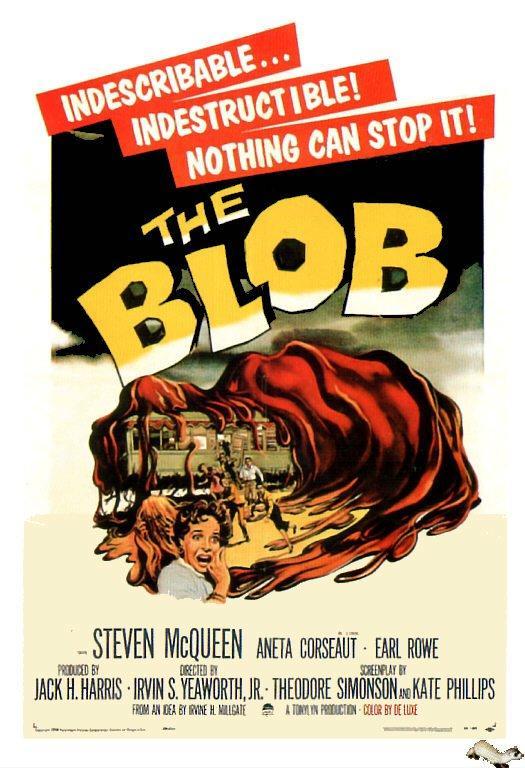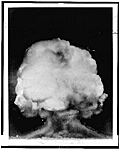Posted on May 26,
2022
Empire-ical Evidence
Was the USSR evil yet?
by
Daniel
Clark
So we're all in agreement that Russia is evil for
waging a war of aggression against a neighboring country that did not threaten
it. In fact, the Democrats have been
particularly adamant about this, starting with President Biden, who has called
Russian president Vladimir Putin a killer and a war criminal. So when will they get around to looking into
Russia's history, and concede that Ronald Reagan was right about the Soviet
Union being an evil empire?
During the Second World War, Josef Stalin invaded and
annexed the Baltic States of Lithuania, Latvia and Estonia, none of which had
been involved in the war or had provoked its powerful neighbor in any way. His Soviet Union also seized parts of
Finland, Poland and Romania. This was
all done at a time when the Soviets believed they were protected by a
non-aggression pact with Nazi Germany, and thus were free to pursue their own
expansionist ambitions.
 Nevertheless,
when Hitler double-crossed them, they only took that as further justification
to devour smaller nations throughout Eastern Europe. Upon formally entering the war, the Soviet
Union invaded and occupied the rest of Romania, along with Hungary, Bulgaria
and Czechoslovakia. These nations, along
with Poland and East Germany, were compelled in 1955 to join the Warsaw Pact,
which the Soviets presented as the counterpart to NATO. In reality, the alliance was anything but
voluntary, considering that these other nations were still being run by puppet
Communist governments, whose authority was maintained by the continued presence
of the Soviet military.
Nevertheless,
when Hitler double-crossed them, they only took that as further justification
to devour smaller nations throughout Eastern Europe. Upon formally entering the war, the Soviet
Union invaded and occupied the rest of Romania, along with Hungary, Bulgaria
and Czechoslovakia. These nations, along
with Poland and East Germany, were compelled in 1955 to join the Warsaw Pact,
which the Soviets presented as the counterpart to NATO. In reality, the alliance was anything but
voluntary, considering that these other nations were still being run by puppet
Communist governments, whose authority was maintained by the continued presence
of the Soviet military.
After the war, Germany was partitioned into four
sections, each of them to be administered by one of the Allies. The capital city of Berlin, though located in
the Soviet zone, was divided into four, also.
This was never meant to be a division of spoils, but whereas Britain,
France and the United States upheld their agreement to oversee their zones
until a new German government was established, the Soviet Union took its part
of Germany, and of Berlin, as a conquest, dividing both the nation and the city
into distinctly free and Soviet-dominated sectors.
In 1961, new Soviet premier Nikita Khrushchev ordered
the construction of the Berlin Wall, which ironically encircled that part of
the city that remained free, to prevent the oppressed Germans in the
surrounding Soviet-controlled area from escaping into it. For the next 38 years, the wall stood as the
world's largest physical monument to victims of totalitarianism.
The Soviets violently crushed an anti-Communist
rebellion in Hungary in 1956. They did
the same in Czechoslovakia in 1968, guided by the "Brezhnev Doctrine," by which
premier Leonid Brezhnev declared that any threat to socialist rule in any
European nation was by extension a threat to socialism throughout Europe,
thereby compelling military intervention by other socialist nations. This policy tore away the facade of
voluntarism from the Warsaw Pact, and instead declared to all the world that the
member states of that coerced coalition were in fact the property of the Soviet
Union.
Not that the Soviets confined their ambitions to
Europe. Over the next fifteen years,
they busily installed Communist dictatorships around the world in the same
manner that they had done among the member states of the Warsaw Pact, from
Vietnam to Nicaragua to Mozambique, which should have surprised nobody. For the founding principle of Communism
("Workers of the world unite!") requires global domination in order to be
realized.
 Russian
president and nostalgic former KGB officer Vladimir Putin is now giving the
world a small sample of the bloodbath in which it had been awash when the Red
Menace was on the prowl. Yet American
and other Western liberals, who today are treating Putin's actions toward
Ukraine as one of the greatest atrocities in world history, actually
sympathized with the USSR, and continue to do so to this day. When Reagan made the very plainly objective
observation that these serial aggressors and would-be rulers of the world were
evil, they ridiculed him as a simpleton, or a dangerous, rhetorical bomb-thrower. To those who smugly called themselves
"anti-anti-Communists," the real enemy was not the Soviet slaughter and
repression of innocent peoples around the world, but America's repudiation of
same.
Russian
president and nostalgic former KGB officer Vladimir Putin is now giving the
world a small sample of the bloodbath in which it had been awash when the Red
Menace was on the prowl. Yet American
and other Western liberals, who today are treating Putin's actions toward
Ukraine as one of the greatest atrocities in world history, actually
sympathized with the USSR, and continue to do so to this day. When Reagan made the very plainly objective
observation that these serial aggressors and would-be rulers of the world were
evil, they ridiculed him as a simpleton, or a dangerous, rhetorical bomb-thrower. To those who smugly called themselves
"anti-anti-Communists," the real enemy was not the Soviet slaughter and
repression of innocent peoples around the world, but America's repudiation of
same.
Nowhere is this more evident than in the liberal
fantasyland that is the entertainment industry.
If Western liberals were really so outraged by unprovoked aggression,
the Soviets would be cast as the villains just as often as their totalitarian
twins from Nazi Germany. To the
contrary, you could probably count the number of negative depictions of the
Soviet Union in television and movies, without even taking off both shoes.
When it comes to Cold War spy stories, the TV series I
Spy stands almost all alone in offering any moral clarity in the struggle
between collectivist ideology and the Free World. Others present the two sides as equal
offenders, often with a third party playing one off the other. In The Man from U.N.C.L.E., American
and Soviet spies team up as partners in an international police force. In Secret Agent, a.k.a., Danger Man,
main character John Drake supposedly works for NATO, but the nature of his
missions is deliberately muddled, often ending with Westerners being the real
bad guys.
James Bond movies have gone to extraordinary lengths
to create non-Soviet villains, beginning with SPECTRE, an apolitical
organization that is self-consciously evil (the acronym stands for Special
Executive for Counterintelligence, Terrorism, Revenge and Extortion), and is
led by the superficially Nazi-ish Ernst Blofeld. The spoof KAOS agent Siegfried on Get
Smart is hardly any sillier at all.
Other Bond villains tend to be deranged lone wolves without any
ideological loyalties.
At best, Cold War movies tend to draw grotesque moral
equivalences, as in Fail Safe, Ice Station Zebra, and even Rocky
IV. "If I can change, and you can
change, everybody can change!" Why
everybody, Rock? Why not just the bad
guys? In The Russians Are Coming, The
Russians Are Coming, a standoff between a Soviet submarine crew and armed
American townspeople ends when both sides spring into action to save an
American boy who is about to fall from a rooftop. The message, that the Soviets were people
just like we are, deliberately ignores the fact that they were never free to be
like we are. Had such an incident
actually occurred, they'd probably have all been shot upon returning home.
 Other
films of that genre do not treat our side so favorably. In the cartoonishly overacted The Bedford
Incident, an innocent Soviet submarine is obsessively pursued by a crazed
American captain, whose unhinged behavior culminates in a preposterous mushroom
cloud finale. America is likewise the
aggressor in the comedy Dr. Strangelove, in which an insane US Air Force
general launches an unprovoked attack.
In Gorky Park, a Moscow policeman falsely suspects the KGB of a
grisly triple-murder, only to learn that the true culprit is a filthy American
capitalist pigdog, as usual.
Other
films of that genre do not treat our side so favorably. In the cartoonishly overacted The Bedford
Incident, an innocent Soviet submarine is obsessively pursued by a crazed
American captain, whose unhinged behavior culminates in a preposterous mushroom
cloud finale. America is likewise the
aggressor in the comedy Dr. Strangelove, in which an insane US Air Force
general launches an unprovoked attack.
In Gorky Park, a Moscow policeman falsely suspects the KGB of a
grisly triple-murder, only to learn that the true culprit is a filthy American
capitalist pigdog, as usual.
Considering the success of liberals in creating a
pro-Soviet narrative, it's not surprising that they were able to cast
anti-Communist Sen. Joseph McCarthy as America's greatest Cold War
villain. Not the Rosenbergs, not Alger
Hiss, not even Lee Harvey Oswald, but McCarthy, whose greatest offense was
accusing Communists of being Communists in a manner that some found
insensitive. Whatever the senator's
flaws, he certainly did not give atomic weapons technology to the Soviets,
infiltrate the State Department on behalf of the Communist Party, or
assassinate the President of the United States.
What he did was many times worse, or so everyone seems to believe, after
absorbing a decades-long drumbeat on the subject from liberal academics and
entertainers.
It was during a Senate investigation of the Army
Signal Corps that McCarthy outed lawyer Fred Fisher as a Communist, at which
time Army counsel Joseph Welch unleashed the reputedly brilliant but genuinely
pointless "have you no decency" zinger.
In fact, Fisher belonged to the National Lawyers Guild, which had been
correctly identified by the House Un-American Activities Committee as a
Communist front group. This was of more
than passing interest to McCarthy, considering that Fisher was one of the
attorneys assisting Welch in defending the Signal Corps before Congress, and
that it was the Signal Corps to which Julius Rosenberg had belonged when he had
become a Soviet agent. According to
history's disparate treatment of McCarthy and Rosenberg, we are apparently meant
to conclude that the latter had more decency.
The liberal media like to refer to the "Red Scare," as
if the threat of Soviet domination had been little more than a figment of a paranoid
American imagination. This semantic
evasion serves as a microcosm of the way they covered up Soviet atrocities all
along. In 1933, New York Times Moscow
bureau chief Walter Duranty was awarded a Pulitzer Prize for reporting on what
he portrayed as the success of Stalin's five-year plan, which he could only do
by denying the manmade famine that the dictator had deliberately imposed on the
Ukrainian people. The Soviet starvation
policy murdered at least 3 million people in Ukraine, as a manner of quelling
that state's independence movement, but Duranty did his best to conceal it. Referring to reports of a famine as "malicious
propaganda," he justified Soviet brutalities with the macabre comparison that, "In
order to make an omelet you have to break a few eggs." All the while, he was actually there,
witnessing the horrors first-hand, watching the "eggs" get broken by the hundreds
of thousands.
So how is it that Russia is so bad, but the Soviet
Union was not? Is it only that the
Democrats never concocted a phony dossier to accuse a domestic political
opponent of "collusion" with the Soviet Union?
If wars of aggression and the wanton slaughter of innocents are what
really animate them, then Putin's inept effort to reconstruct the USSR cannot
begin to compare to the real thing. If the entire population of the Democratic
Party contained a singular scruple about hypocrisy, let alone about having
facilitated the most murderous and belligerent geopolitical entity of the
Twentieth Century, its members would now be climbing all over each other in
order to condemn what Reagan rightly identified as an evil empire, and to
apologize for not having done so decades earlier. If it wouldn't be too terribly painful for
them, they might even concede that the United States is not really so bad by
comparison.
The Shinbone: The Frontier of the Free Press